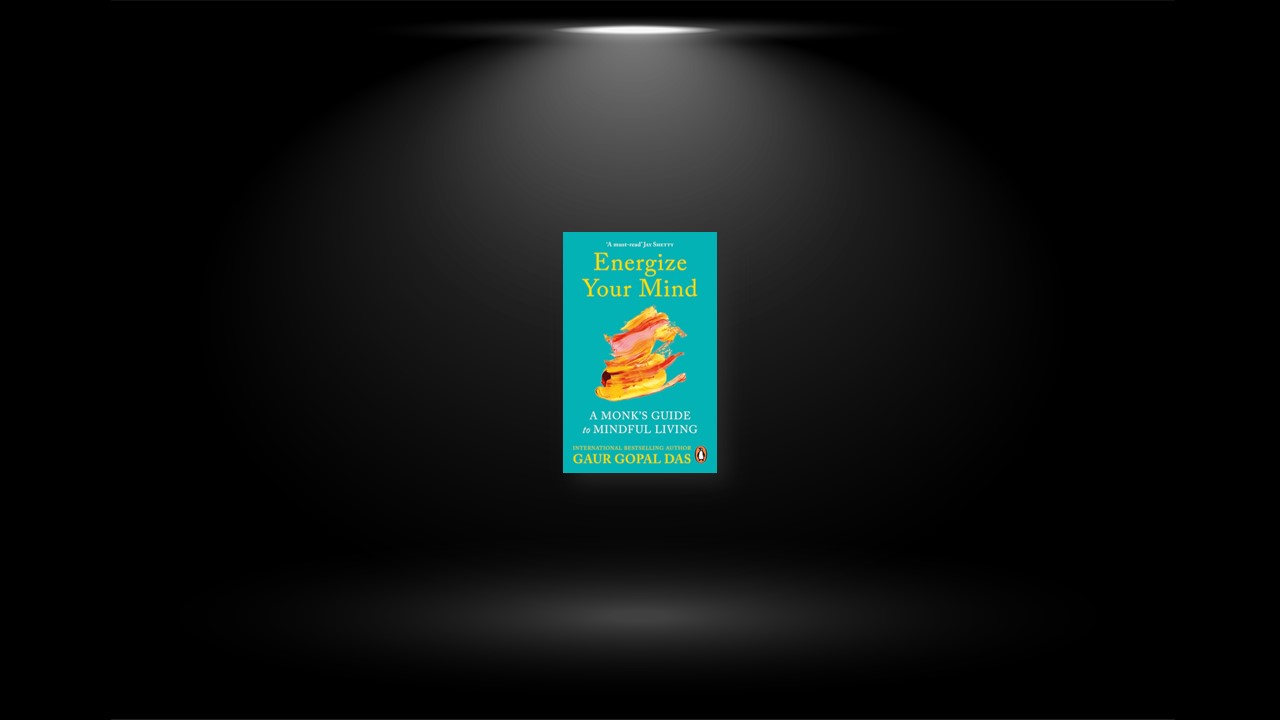How to Feel, Deal and Heal Our Emotions
We are humans, not humanoids. As sentient beings, we have real intelligence and real emotions. Humanoids are static, humans are dynamic. We have to understand how to control our emotions. Mastering our emotions is the first step to achieving our goals. We can master our emotions through feel, deal and heal.
Feel: to recognize or label the emotions we are feeling. Deal: to understand what to do with our emotions when we feel them. Heal: many emotions may have long-term effects. Just as physical injuries to our skin can leave scars, emotional injuries to our mind—trauma, regret, grudges, resentment—can also leave scars that need to heal.
Just as we all have different rates of metabolism, we all process emotions in slightly different ways. We should not rush the process of dealing with and healing from our emotions.
Dealing with the Fear of Missing Out
In this world, everything is like a coin; there are always two sides. Things that seem good always have a downside; things that seem bad always have an upside. If the focus is on what we don’t have, it takes away value from what we do have. This mindset is the key to crafting joy; the opposite of that is comparison, which is the thief of joy.
In our modern society, this ‘missing syndrome’ is leading to a mental health calamity as we have constant access to compare our lives with those of others. We must know how to use social media proportionately or we can be used by it. The key thing to note is that if our habit to check our social media feeds is no longer rewarding, then it is a harmful habit that may be damaging our health.
We can start making small shifts in our mindsets to focus more on our own lives rather than those of others. By looking beyond external pleasures and finding inner fulfilment in the meaningful things in life, the fear of missing out will seem secondary. If you can learn to enjoy being in the present, the fear of missing out will not be able to hurt you. Rather than looking at what we cannot do or what we do not have, it is important to be grateful for what we can do and what we do have.
Dealing with Mental Chatter
There are no breaks or time-outs with our own mind. It is constantly on when we are awake, and sometimes stops us from falling asleep. Even when we are asleep, it is wandering in different directions that are beyond our control. It’s the subtle organ that never rests, chattering away like a child.
It’s the person that we spend the most time with. Therefore, it is critical that we like that voice and make sure we can befriend it to work with us. We have to learn when to ignore the mind and when to give it attention. This is also an active process that, at first, requires conscious competence. But over time, as we get used to ignoring the mind’s childish requests, it becomes less of a struggle and becomes unconscious competence.
Just as we can turn our phone from loud to silent, there are ways to put our mind from loud to silent. The key to negotiating with the mind is remembering the end goal that we want to achieve. There has to be some sort of compromise. There should be a time in the day when we are aloof even from our thoughts. This could be our space of nothingness, just observing our mind. No analysis, no judgements, no reactions.
Dealing with Anxiety
Anxiety disorders are the most common mental illnesses in the world. The thoughts that we repeat not only are likely to become our actions, but also our emotions. If we can repeat our reasoning rationales, we are more likely to calm the chattering mind.
Instead of trying to suppress our feelings or ‘calm down’, studies show that we should try and express those feelings as excitement. If rational reasoning does not work and the ‘what ifs’ get the better of us, there are other simple physiological things we can do to help ourselves, namely, exercise and stopping smoking and drinking alcohol.
It should be commonplace to seek help when we are struggling with our mental health. Making ourselves busy with work, even if it is charity or spiritual work, will not cover up our deep, underlying emotional needs. Spiritual practices are meant to awaken our deeper self. They are not there to deal with our physical or mental ailments, although they may have that after-effect and can complement our healing.
The first step is always accepting that we have a problem. always recommend meeting those we trust privately and not advertising our problems to the whole world. That can be overwhelming and unproductive in helping us deal with our anxiety.
Dealing with Guilt
We have all gone through situations in life that we regret. Guilt can be constructive and destructive. It is constructive when it helps us correct a situation and improve ourselves. A lack of guilt can suggest a lack of conscience. Destructive guilt can have symptoms of lack of self-forgiveness, magnifying the guilt out of proportion to the problem and it does not lead to our growth and progression.
Guilt can be reasonable and unreasonable. We can deal with reasonable guilt by rectifying the situation, changing ourselves for the better and/or simply moving on if these two fail. For unreasonable guilt, we must identify the variables that are within our control and work on them, and also identify the constants—things that are beyond our control—and understand they will never change.
In any case, self-forgiveness is foundational in moving on and rising above those negative feelings.
Dealing with Grief
We are meant to feel pain, but we are not only meant to go through it, we are also meant to grow through it. Grief can disrupt our physical health—affecting sleep, eating and cognitive ability. We have to actively work on our healing. People may process grief in different ways and that is okay.
Feeling guilty about moving on can disrupt our healing process. Grief can be cyclical; as we grow and heal, we may go through the same five stages of grief again, but our ability to deal with it has become stronger.
We may find solace in family, friends, faith, professionals or expressing our grief in a creative way. The Bhagavad Gita mentions that just as summer turns to winter and winter turns to summer, our happiness and distress also change, nothing is permanent . . . This too shall pass.
Developing Empathy
It is important to understand that everyone is going through some challenge or the other; in that light, we need to learn how to be empathetic. The different types of suffering are split into three categories: suffering as a result of our own actions, suffering as a result of another’s actions and suffering imposed by nature.
As a collective, we are called humankind. Therefore, the core, the essence, of being human, is being kind. Empathy is learning how to be kind without judgement. The first principle of empathy is to understand the issue. To do this, we need to learn how to listen to understand and not to reply.
The second principle of empathy is to try and intentionally feel the emotions of another. It is one thing to understand an issue, but we need to develop an emotional connection to display empathy. The third principle of empathy is acting. Although being there for someone in their time of difficulty is acting, we must understand that love is a verb. Is there anything in our capability we can do to eliminate or minimize their pain?
Developing Selflessness
Just as a mirror can reflect our externals well, we have to continuously place a mirror on ourselves internally through deep introspection to see if we are moving beyond ourselves to really help the mental well-being of others.
To develop self-awareness, we must look out for three things: self-conceit, self-absorption and selfishness.
Self-conceit refers to taking undue pride in ourselves. It means to have an excessively favourable opinion about ourselves and our abilities. Self-absorbed means to be preoccupied with one’s feelings, interests and situation without considering the same for others around us. A selfish person deeply cares only about their own personal profit and pleasure.
The way to accept self-care without being selfish is through self-awareness. When self-care remains only for oneself without extending into the service of others, it morphs into selfishness.
We Are a Universe within a Universe
not matter or as physicists may say, it is ‘anti-matter’. It is generated from the area around the heart from the spark of life that gives energy to the other layers of our identity, the senses, mind, intelligence and the ego. In many traditions, this spark is called the ‘soul’ or the ‘spirit’. In ancient wisdom, it is called the ‘atma’. They are all synonyms, but are just called different things based on time, place and circumstance. It is when the spark leaves the body that life comes to a standstill. It is the driving force of life.
The Lion King shows a concept of the main character Simba being extremely powerful but forgetting who he is. Rafiki, the mystic healer, takes him to the top of the mountain where the spirit of Simba’s father Mufasa reminds him of who he is and gives him the power to achieve what he sets his mind to. ‘Just remember who you are,’ he tells the lost Simba. If we decide to, and truly connect with the atma, moving beyond our external identity labels, not only do we have the ability to reach our aspirations, but also handle everything that comes our way by connecting to a spiritual energy that is not known by many.
The physical body has senses—sight, touch, smell, taste, sound—which interact with sense objects. We may interact with sense objects using our senses, but we are not our senses. The mind interacts with the senses and is responsible for thinking, feeling and willing, but we are not the mind either.
The intelligence is another subtle part of our being which is used to discriminate how to act; it analyses a situation. Nevertheless, the essence of our being is not the intelligence. The ego represents the multiple roles and identity labels that we have. It is even more subtle than the mind and intelligence, and something that we deeply identify with. However, we’re not the ego either.
The real self is called the atma or spiritual consciousness. It is the final layer within which is the essence of our being.


